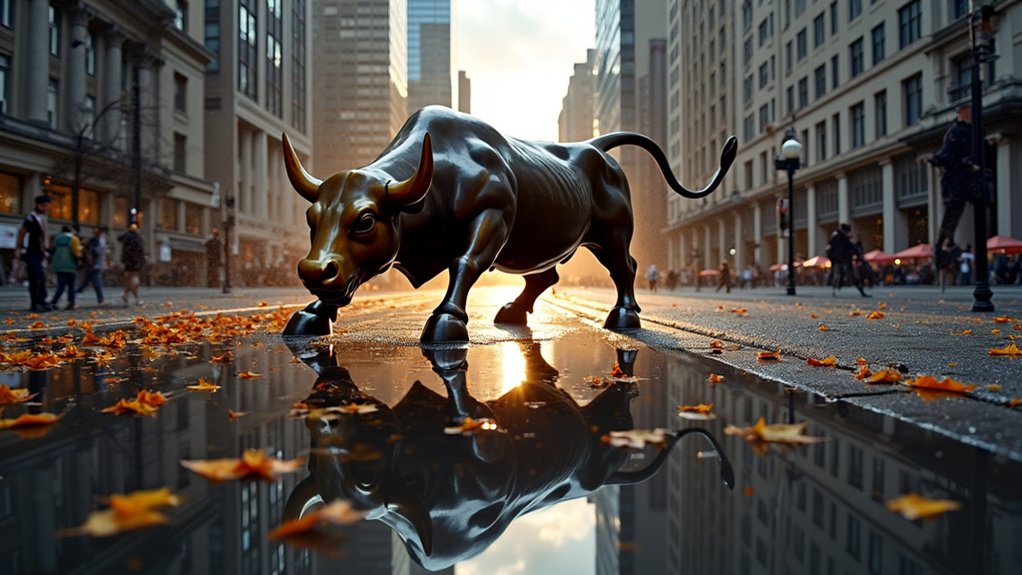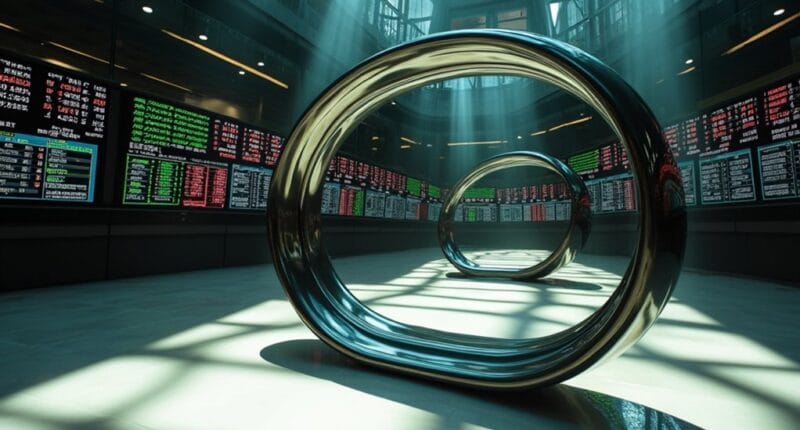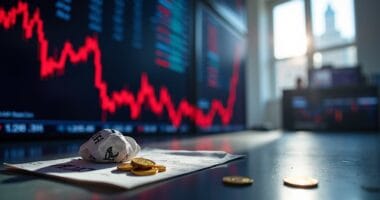Wall Street’s having a party while the economy’s nursing a hangover. Major players like JPMorgan and McDonald’s hit record highs despite economists waving red flags everywhere. The disconnect between stock prices and economic reality is stark – think Apple dropping 25% after launching the iPod. With 70-90% of company value tied to future cash flow, today’s rally feels like a fun house mirror distortion. The real story lies in what happens when the music stops.

Why does Wall Street keep getting it wrong? The answer lies in a paradox that’s driving America’s biggest investors crazy. While economists have been predicting doom and gloom for 18 months, the stock market keeps partying like it’s 1999. JPMorgan, Mastercard, and McDonald’s are hitting record highs. Makes perfect sense, right? Wrong.
Here’s the thing about America’s stock market – it’s basically a fun house mirror. Sure, it’s massive, controlling over 40% of global market cap. But that doesn’t mean it reflects reality. Just ask Apple, whose stock tanked 25% the same year they launched the iPod. You know, that little device that later sparked the greatest corporate turnaround in history. Wall Street’s reaction? Total face plant. With 26 million jobs lost during the COVID-19 crisis, the market’s resilience seems more disconnected than ever.
Wall Street’s crystal ball looks more like a carnival mirror – big and shiny but hopelessly distorted when predicting real market value.
The disconnect between stock prices and actual value isn’t just annoying – it’s systemic. McKinsey says 70% to 90% of a company’s real value comes from cash flow three or more years out. Meanwhile, Wall Street analysts are squinting at one-year projections like they’re reading tea leaves. No wonder they keep missing the forest for the trees. A diversified portfolio strategy helps investors protect against these market disconnects.
The current rally has traders scratching their heads. Traditional recession indicators are flashing red, but the market keeps climbing. Some say it’s signaling “NO RECESSION.” Others see a mirage that’ll vanish faster than free coffee at a shareholders meeting. Companies have redirected their corporate borrowing toward stock buybacks and dividends instead of investing in growth.
Remember 2020? The pandemic pulled back the curtain on just how artificial some of these valuations were.
Stanley Druckenmiller calls the stock market “the best economist.” But even the best economists get it wrong. Bear markets during recessions typically dive 37% over 18 months. Without recessions? They drop 24% in seven months. The math isn’t exactly comforting.


